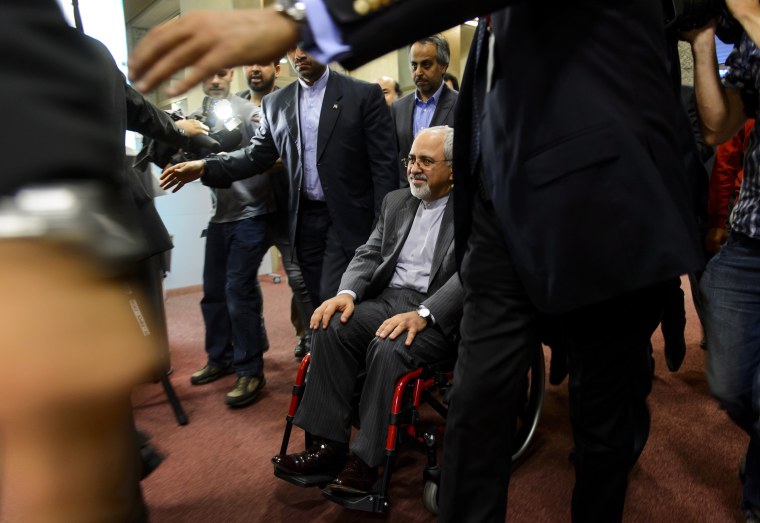On the plus side, Iran offered its own proposal to resolve the nuclear issue, complete with PowerPoint presentation. It had previously resisted putting forth specific ideas until international sanctions were lifted. That no significant official details of the discussions have emerged so far could actually be a positive sign. It suggests that, for now at least, the participants see value in giving serious consideration to what has been put on the table instead of trying to sabotage it with strategically placed leaks. In another positive development, American and Iranian negotiators met privately for about an hour. Iran had rejected previous administration requests for this kind of direct exchange, which is needed if the two sides are to reduce the enormous mistrust that has built up over 30 years.... It was also encouraging that the major powers and Iran ended the Geneva meeting with a rare joint statement praising Iran's proposal as an "important contribution." They also agreed to another negotiating session in three weeks, after their technical experts on nuclear, scientific and sanctions issues meet to discuss their differing approaches and develop practical steps to a deal. There were also upbeat remarks from American and European officials, who described the talks as substantive and forward-looking.
Diplomacy with Iran inches forward
Diplomatic progress in Iran is slow, but real. We haven't seen anything like this in 34 years, and there's clearly reason for cautious optimism.

It's a familiar dynamic: fierce adversaries that clearly see the world in very different ways. The rivals don't trust one another, have little in common, and are burdened by a history of crises and acrimony. Skeptics fear they'll never be able to work constructively, find areas of common ground, or reach any kind of agreement.
Democrats vs. Republicans? Maybe, though in this case, I'm referring to negotiations with Iran.
Just a few weeks after a thaw in the generation-long tensions -- including a historic phone conversation between President Obama and President Rouhani -- Iran met in Geneva this week with diplomats from the United States, Britain, Russia, France, Germany, and China. There was no breakthrough, but there was meaningful progress.
Fred Kaplan added in an interesting piece last night, that the chances for "a truly historic breakthrough are pretty good," adding that Iran's main demands seem "pretty reasonable."
The negotiators have even found untraditional common ground -- when Iranian Foreign Minister Mohammad Javad Zarif, who led his delegation in Geneva, arrived in a wheelchair due to severe back pain, others in the room were quick to discuss remedies that had worked well for them.
Let this be a lesson to all of us: the universal language isn't music or math; it's backaches (thanks to my colleague Nazanin Rafsanjani for letting me know about this).
Regardless, the progress is real, though it's also incremental. There's reason for cautious optimism, but 34 years of tensions and hostilities will not be resolved by a few days in Geneva. Indeed, Iran's track record on transparency and following through on promises reinforces fears that progress may yet prove to be a mirage.
But at least for now, we can also say with confidence that there hasn't been diplomatic movement this constructive since the Iranian revolution. It's precisely why the Obama administration has a new carrot in mind: "a proposal to ease the pain of sanctions on Tehran by offering it access to billions of dollars in frozen funds if the Iranian government takes specific steps to curb its nuclear program."